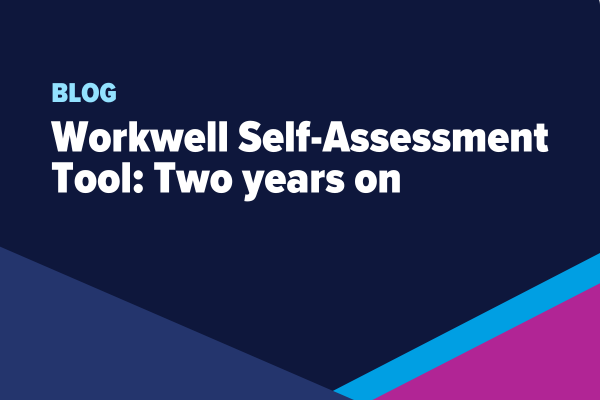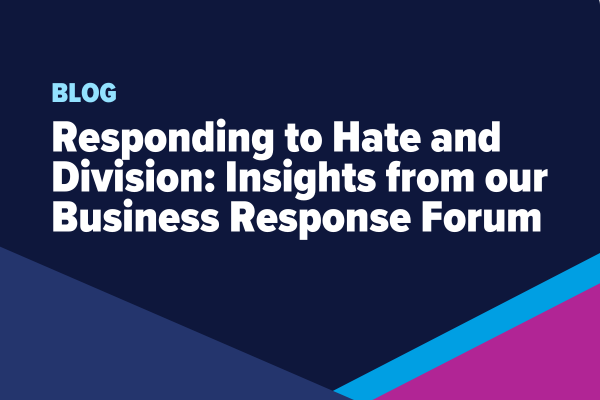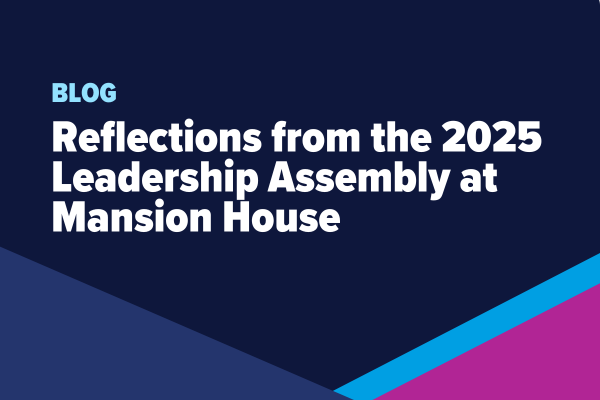How businesses can close the upskilling gap
Upskilling for growth: How businesses can close the upskilling gap
Ola Kolade, Employment and Skills Director at Business in the Community, discusses the forthcoming Lifelong Learning Entitlement and the need for government and employers to work together to upskill the UK’s workforce and drive economic productivity.
Skills shortages will cost the UK economy around £120 billion by 2030.1 As the world of work transforms, the ability to learn, adapt, and reskill throughout an individual’s career has never been more crucial.
During Get the Nation Learning Week (3–7 November 2025), Business in the Community (BITC) is calling on employers to rebalance skills investment and champion a culture of lifelong learning across their business.
The evidence is clear: lifelong learning boosts employment, earnings and productivity, supporting a stronger and more inclusive economy. Employers can join a movement of employers committed to supporting people to embrace lifelong learning as part of their career journey by signing up to the Learning & Work Institute’s ‘Get the Nation Learning’ Charter.
Why lifelong learning matters now
The UK labour market is undergoing profound change. Automation, AI adoption, and the transition to a clean energy economy are reshaping roles in every sector and closing the skills gap could provide a £150 billion uplift to the UK economy by 2030.2
90% of the UK workforce will need to upskill by 2030 to keep pace with the demands of a rapidly changing economy.3 Yet, despite this clear need, employer investment in training has fallen by 27% per employee between 2005 and 2022.4 This decline comes at a time when skill shortages in digital, green, and technical sectors are becoming more acute, threatening both business competitiveness and national productivity.
5 Companies that prioritise learning see measurable benefits, businesses with a mature learning culture consistently outperform peers in market share, innovation, and employee engagement. According to LinkedIn’s 2024 Workplace Learning Report, top-performing organisations are 46% more likely to have a strong culture of lifelong learning.6
The Lifelong Learning Entitlement: opportunity and challenge for workforce reskilling
The confirmation of the Lifelong Learning Entitlement (LLE) in the Government’s recently published Post 16 Education & Skills White Paper signals a shift towards flexible, modular education – enabling adults to upskill throughout their careers and presenting a key opportunity for employers and employees to align workforce planning with lifelong learning.
Whilst further detail on the delivery is still required, the LLE is expected to be launched in September 2026. The LLE enables adults to upskill or reskill throughout their careers using existing student loan and apprenticeship frameworks (up to £38,140 to use for flexible, modular courses at Levels 4–6).7
For employers, this presents a major opportunity:
However, the model also raises practical questions for business:
Co-designing the LLE with employers is essential to make it work. Only by aligning learning pathways with business and regional needs can the entitlement deliver growth for individuals, employers, and the wider economy.
Lifelong learning in action
In Wisbech, Anglian Water Alliance and College of West Anglia are delivering a shared apprenticeship model that allows trainees to rotate across partner companies working on major infrastructure projects. This collaborative approach not only builds specialist skills but also strengthens local economies and supports social mobility.8
Boots leveraged its “Learning Takeover Week” to raise learning engagement across 50,000+ employees. With senior leader buy-in, accessible 1.5-hour activities and line-manager support, they made learning visible and connected it to both career and personal growth.9
Amey’s ReStart programme is a 12-week paid placement designed for professionals returning from career breaks or moving into new sectors. Participants work on real infrastructure projects while receiving tailored training, mentoring, and support to transition into permanent roles. The programme unlocks untapped talent and strengthens Amey’s workforce diversity and skills base, particularly across engineering, digital, and sustainability roles.10
What employers can do now
For businesses, now is the time to act:
Investing in embedding lifelong learning is investing in productivity, innovation, and resilience. It empowers employees to adapt, businesses to stay competitive, and the wider economy to thrive in the face of rapid change.



